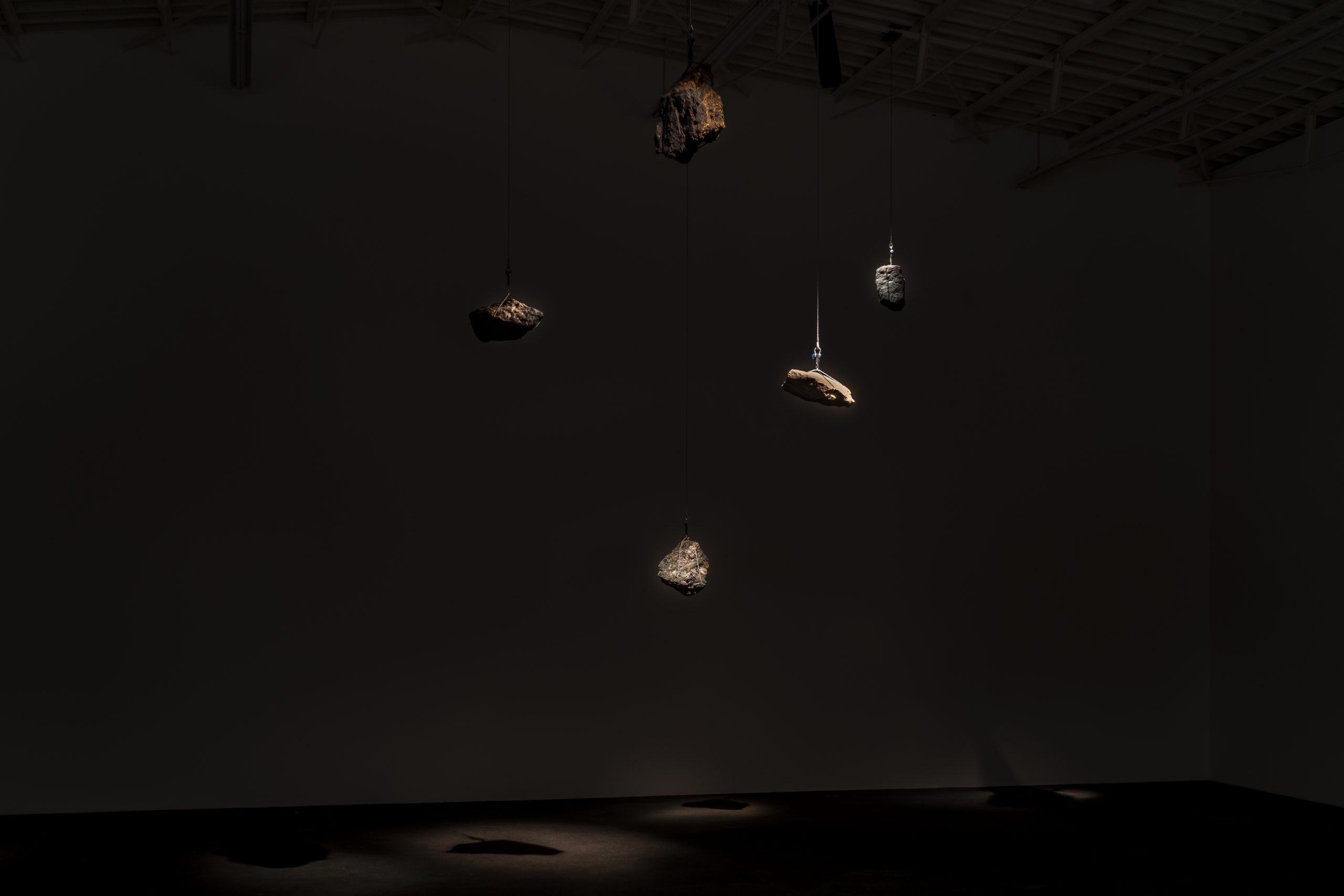For centuries, the constellation of the Southern Cross played a central role in seafaring, also leading the Portuguese to Brazil in 1500, as reported by astronomer Mestre João Faras, who accompanied the expedition. The constellation is only visible from the southern hemisphere and is composed of five stars forming a cross-like figure pointing south.
Aline Baiana’s installation The Cross of the South (2020) replicates the constellation employing five stones from which iron ore, manganese ore, copper ore, gold, and ornamental stone are typically extracted. These minerals are emblematic of the massive mining industry that has developed in Brazil since the beginning of colonization. Arranged in the same order as the stars of the constellation, the gems form a cross that is only recognizable from one specific point in the exhibition space. The work thus encourages us to walk around and change our viewing perspective, exhorting us to reflect critically on the way historical narratives are also informed by a dominant viewpoint—one that has neglected other systems of knowledge and narratives, including Indigenous ones.
Mining is one of the major industries in the Brazilian economy, having disastrous consequences for the environment and the Indigenous peoples who have lived on these lands since pre-colonial times. The 2019 Brumadinho dam break is one catastrophic example among countless others. Baiana’s work highlights the collective trauma and environmental impact of the enduring crimes of colonization. It also prompts a geological and cosmological look into decolonized futures in which manifold systems of knowledge are understood non-hierarchically, and the natural environment is not viewed solely as a resource to be exploited and commodified.
Text: Vanina Saracino (Berlin Biennale 2020)

